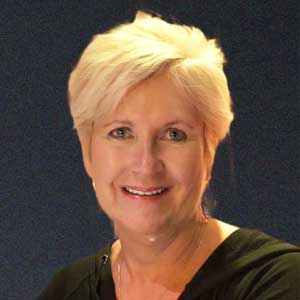
A future where autism care is personalized to fit an individual’s unique genetic makeup is now one step closer to reality, thanks to a new big data initiative.
Known as the Autism Sharing Initiative, the project is bringing together autism researchers from around the world to create the first global network for sharing clinical and genetic data—a move that will accelerate autism research and support the development of personalized care and treatment options.

Dr. Suzanne Lewis
Geneticist Dr. Suzanne Lewis, a clinical professor in UBC faculty of medicine’s department of medicine, is among the international team of autism researchers and is leading efforts underway at UBC and BC Children’s Hospital Research Institute (BCCHR).
Here, she discusses the genetics of autism and shares how this new initiative will advance research and potentially alter the future of diagnosis and treatment for the nearly one in 66 Canadians living with autism.
What is known about the genetics of autism?
The first clue that genetics played a role in autism emerged nearly 50 years ago when researchers found that identical twins shared an autism diagnosis much more frequently than non-identical twins.
Today, we know there are a long list of genes implicated in autism—and that list is growing.
Many of these genes are involved in controlling communication between neurons, the information messengers of our body.
Because there’s not a single type of autism, but rather a full spectrum of autism subtypes—all of which are influenced by a combination of genetic as well as environmental factors—understanding the mechanisms involved in autism is a complex undertaking.
We’re gaining new insights every day but are really just at the tip of the iceberg.
How will this new initiative help to advance our understanding moving forward?
Up until now, our ability to understand the genetic factors involved in autism has been limited by the specific data available at our individual institutions.
Using new technology, the Autism Sharing Initiative will enable international collaboration between institutions, allowing researchers like me to use powerful artificial intelligence methods to search and analyze multiple, de-identified genomic and patient datasets from around the world.
By having access to more information, we’ll be able to uncover genetic insights into autism at a pace that wouldn’t have been possible before.
How is your work at UBC advancing this international collaboration?
Through a unique UBC-based project called iTARGET (individualized Treatments for Autism Recovery using Genetic and Environmental Targets), our team based at UBC and BCCHR is already taking a personalized approach to understanding autism patients.
We have sequenced more than 700 whole genomes of patients and their parents and are evaluating this information in the context of everything from the patient’s symptoms to their microbiome (all the microorganisms living in their bodies) in order to get a full picture and deeper understanding of the different and incredibly complex causes of autism.
As a partner in the Autism Sharing Initiative, this rich dataset will now be available to researchers in other parts of the world.
How could this initiative change how autism is diagnosed and treated?
For a long time, autism diagnosis and treatment has taken a ‘one-size-fits-all’ approach. Symptoms have been treated without a deep understanding of what’s causing those symptoms.
Fortunately, things are now changing and autism is increasingly recognized as not just autism, but many different subtypes.
Now, by working across institutional boundaries, we’ll be able to better recognize emerging autism subtypes, which can help inform diagnosis and treatment.
If we know a little bit more about the genetics involved, for example, we can offer more tailored care. This is particularly important when it comes to selecting medications for children as they are incredibly sensitive to drugs and often show paradoxical reactions, whereby the medication does the opposite of what you want it to do and actually makes a particular symptom worse.
UBC is a partner in the Autism Sharing Initiative, supported by Canada’s Digital Technology Supercluster.